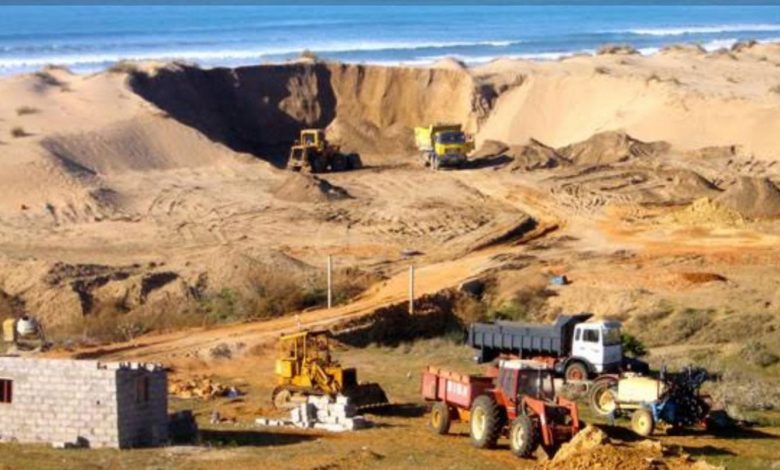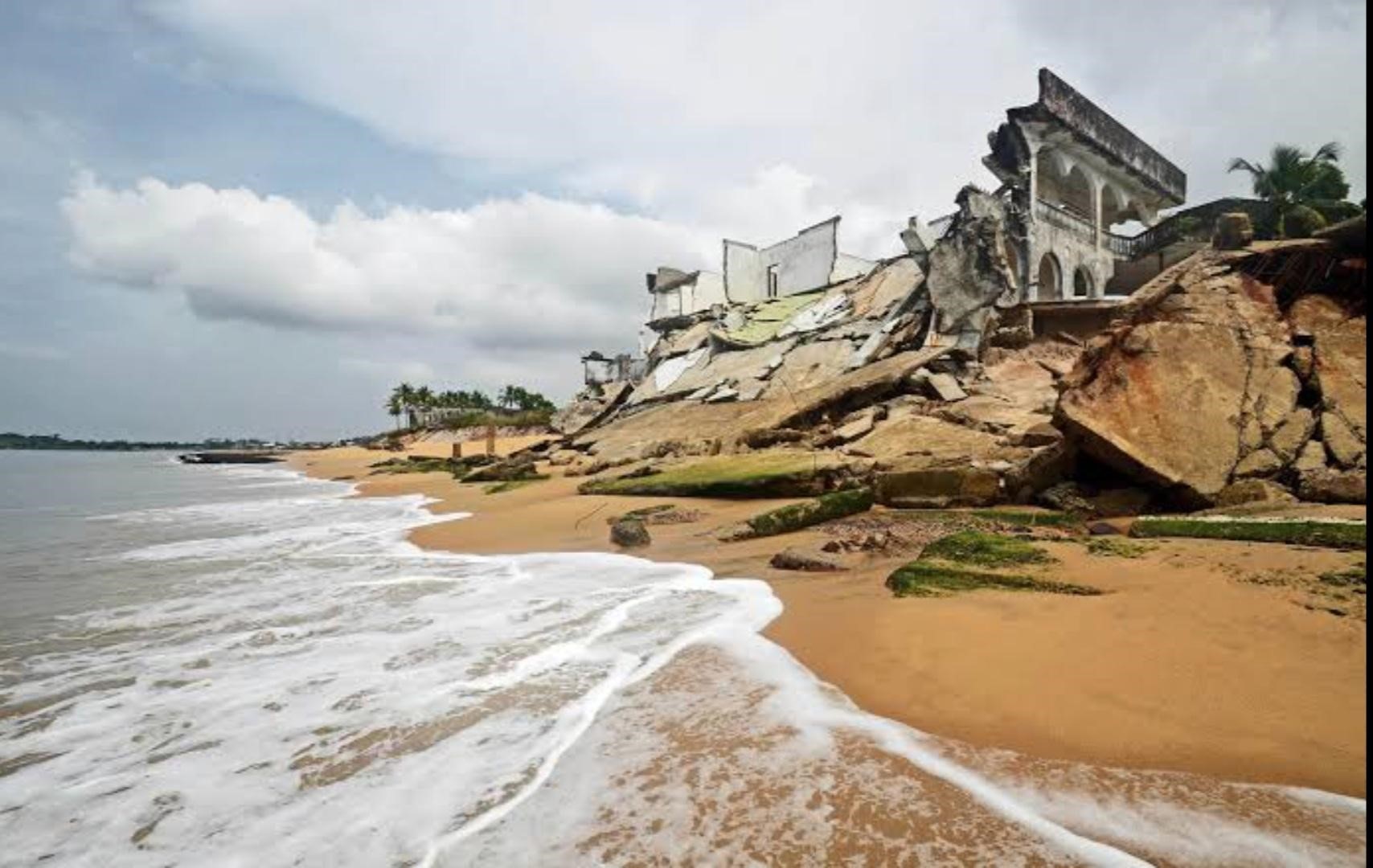How Sierra Leonean Sand Miners Are Challenging the Sea to a Duel

Among the Pidgin English speaking urban communities of West African there is a saying that serves as a warning against exuberant rascality: “trouble dey sleep, nyanga come wake am.” This translates to: “trouble is on a self-elected retreat but pride comes upon it with a provocation.”
Along the coastal beaches in Sierra Leone’s Western Area Peninsula, sand miners are effectively acting out the seemingly inconsiderate role of provoking a likely environmental wreck on society with their illicit activities.
According to the Director of Tourism, Mohamed Jalloh, illegal sand mining has caused grave destruction and losses to both residential communities and hospitality businesses in the country.
He nevertheless acknowledged that when operated within the provisions of the law, in accordance with the Local Government Act of 2004, it serves to generate revenues and development for the state.
“The beaches are among the ministry’s greatest assets, and if Sierra Leone is to compete with other countries in tourism, we have to protect our natural resources from depletion,” he stressed.
Jalloh also recommended that “local councils needed to review the Local Governance Act of 2004 to decide on designated sites rather than rampant mining.”
Sierra Leone has kilometres of sprawling coastal beaches. The most enticing of the beaches are being ravaged through illicit sand mining.
With the closure of businesses arising from the COVID-19 pandemic, an army of otherwise idle men have turned their eyes and energies to the illicit sand mining as an easy means to survival.
But authorities are apparently waking up to the challenge. From Levuma to Hamilton, local authorities are urging communities to get involved in a community based campaign to eliminate illicit sand mining.
Accordingly, several community meetings have been held jointly with the police and officials of the Environmental Protection Agency, Office of National Security, the Tourism Ministry and other stakeholders involved in environmental protection and advocacy to arrest the illicit sand mining at the beaches.
At Lakka, most of the hospitality operators were forced to close shop in 2019 as a result of illicit sand mining. One notable fallout of this has been the routine overflowing of the water banks whenever there is a rise in the sea level or when there are heavy rains.
Paul Bangura is the proprietor of Paul’s beach bar and restaurant in one of the beaches. He shared with HumAngle his disappointment following the wreck that both the coronavirus pandemic and the resulting water surge on the beach are making of his business.
“I was forced to lay off some staff because there are hardly any guests now. But more disturbing is that the illicit sand mining is undermining the foundation of my beach patio for guests who wish to sit in the open to experience and enjoy the African sunshine and natural breeze,” Bangura lamented.
According to him, the sand miners always come prepared against any envisaged confrontation from vigilantes.
“They come in their numbers and are always armed to confront any opposing party. They wield machetes and some other locally made weapons,” he revealed.
Respective local authorities in Goderich and Lakka, Sheku Fornah and Foday Tucker, who spoke with HumAngle expressed frustrations at the aggressive forays by illegal sand miners.
“When people engage in illicit sand mining the sea comes closer to the land, forcing the fishes to move further off. This makes it difficult for fishermen to get a good catch,” remarked Fornah.
Both local officials told HumAngle that some law enforcement officers were having a tough time enforcing the law and bringing defaulters to book.
Some local officials, however, alleged that some police officers undermined the efforts of others by compromising themselves and collaborating with defaulters brought to face the law.
Tucker further complained that some land developers who knew the boundaries legally set by government authorities for sand mining knowingly overshot those boundaries being aware that they could buy their way with some police officials.
But at Adonkia Police station, officers who spoke with HumAngle under a condition of anonymity, denied any foul-play in arresting and interrogating suspects. Rather, the police accused local council officials and local authorities in communities of acting in concert with illegal sand miners.
Residents at Goderich and Lakka communities are apprehensive, fearful that the sea has started fighting back. Many people have lost their properties from the resulting landslide.
Angela Kamara, a resident, told HumAngle that her family lost two properties at the beach front and expressed fear that “if an urgent halt is not made, all manner of tourism along the coastal beaches will become history. In addition, communities will be swallowed up in the next two decades.”
At the newly established Ministry of Environment, the Director of Environment, Edward Bendu, told HumAngle he expected stakeholders to see to it that sand mining was carried out responsibly as to preserve the beauty and attractive landscape of the beaches.
Bendu warned that studies had shown that sand containing salt was not suitable for construction, as over time the property would succumb to structural cracks due to the chemical composition of salt in sand.

Support Our Journalism
There are millions of ordinary people affected by conflict in Africa whose stories are missing in the mainstream media. HumAngle is determined to tell those challenging and under-reported stories, hoping that the people impacted by these conflicts will find the safety and security they deserve.
To ensure that we continue to provide public service coverage, we have a small favour to ask you. We want you to be part of our journalistic endeavour by contributing a token to us.
Your donation will further promote a robust, free, and independent media.
Donate HereStay Closer To The Stories That Matter




